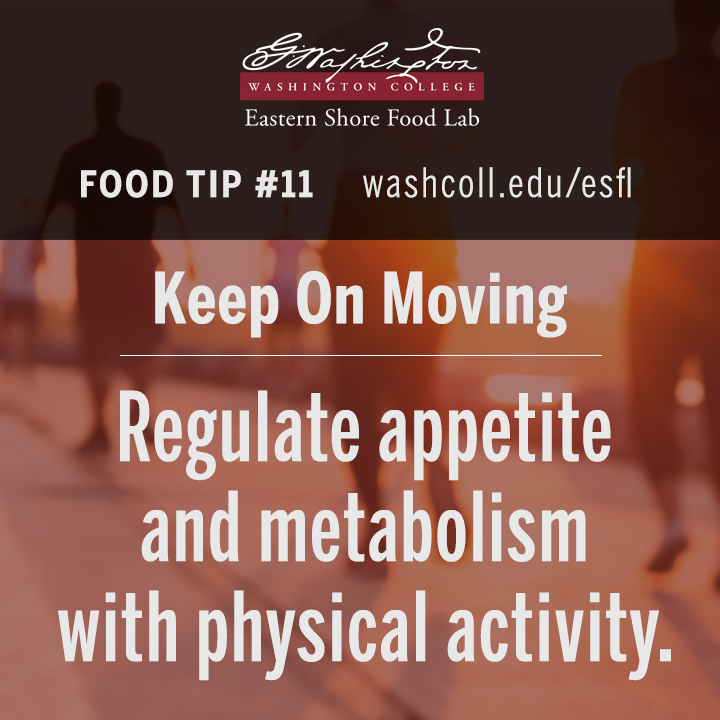Keep on Moving
Regulate appetite and metabolism with physical activity.
Exercise isn't just good for your heart! Studies have shown aerobic exercise can help speed up a sluggish metabolism.
Muscle cells require more energy than fat cells. Regularly working your muscles allows you to burn more calories. Even after a workout, muscle cells will consume calories from the food you eat at a higher rate than fat cells, providing you with more sustained energy.
Production of ghrelin, the hormone responsible for feelings of hunger, decreases following exercise; while levels of peptide YY, the neurochemical that makes us feel satiated, increases for several hours after exercise.
Our ancestors needed to walk to forage for food, to run from threats, and push, pull, and lift ourselves to safety. Working muscles to failure in movements that require intense concentration — resistance training of any kind — improves cognitive function, strengthens bones, and enhances cellular metabolism.
So, next time you're feeling snacky, perhaps take a walk, do a challenging set of pushups, or try some yoga before reaching into the cupboard.
